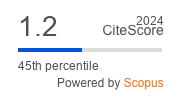Derivatives of 2-amino-4-(furan-2-yl)pyridine-3-carbonitriles as promising antistaphylococcal drugs
https://doi.org/10.33380/2305-2066-2025-14-3-2140
Abstract
Introduction. Furan-containing compounds frequently demonstrate antimicrobial properties. While pyridine-based compounds alone lack antimicrobial activity, their structural combination with a furan moiety presents a promising approach for designing novel antimicrobial agents.
Aim. This study aims to synthesize hybrid molecules incorporating both furan and aminopyridine fragments and evaluate their antimicrobial potential.
Materials and methods. We prepared a series of 5,6-substituted 2-amino-4-(2-furyl)pyridine-3-carbonitriles via a one-pot multicomponent reaction using furfural, malononitrile, ammonium acetate, and selected ketones.
Results and Discussion. The synthesized compounds exhibited significant antimicrobial activity against Staphylococcus aureus, Pseudomonas aeruginosa, and the yeast-like fungus Candida utilis. Structure-activity relationship analysis revealed that substituents at the 5- and 6-positions critically influence antibacterial potency.
Conclusion. We successfully developed a novel series of 2-amino-5,6-dialkyl-4-(furan-2-yl)pyridine-3-carbonitriles and characterized their in vitro antimicrobial effects, identifying key structural features for enhanced activity.
About the Authors
D. S. BespalovRussian Federation
24–26/49A, Moskovsky prospect, Saint-Petersburg, 190013
D. M. Egorov
Russian Federation
39, 14th line V.O., Saint-Petersburg, 199178;
24–26/49A, Moskovsky prospect, Saint-Petersburg, 190013
A. S. Krylov
Russian Federation
39, 14th line V.O., Saint-Petersburg, 199178;
24–26/49A, Moskovsky prospect, Saint-Petersburg, 190013
E. N. Chernova
Russian Federation
39, 14th line V.O., Saint-Petersburg, 199178
I. L. Kuzikova
Russian Federation
39, 14th line V.O., Saint-Petersburg, 199178
Z. A. Zhakovskaya
Russian Federation
39, 14th line V.O., Saint-Petersburg, 199178
References
1. Smith W. P. J., Wucher B. R., Nadell C., Foster K. Bacterial defences: mechanisms, evolution and antimicrobial resistance. Nature Reviews Microbiology. 2023;21(8):519–534. DOI: 10.1038/s41579-023-00877-3.
2. Bottery M. J., Pitchford J. W., Friman V.-P. Ecology and evolution of antimicrobial resistance in bacterial communities. The ISME Journal. 2021;15(4):939–948. DOI: 10.1038/s41396-020-00832-7.
3. Salam M. A., Al-Amin M. Y., Salam M. T., Pawar J. S., Akhter N., Rabaan A. A., Alqumber M. A. A. Antimicrobial Resistance: A Growing Serious Threat for Global Public Health. Healthcare. 2023;11(13):1946. DOI: 10.3390/healthcare11131946.
4. Avtonomova A. V., Krasnopolskaya L. M. Structure of Pathogens Causing Invasive Mycoses and the Development of Their Resistance to Antifungal Drugs. Antibiot Khimioter = Antibiotics and Chemotherapy. 2024;69(11–12):110–120. (In Russ.) DOI: 10.37489/0235-2990-2024-69-11-12-110-120.
5. Tilchenko D. A., Bibik E. Yu., Dotsenko V. V., Krivokolysko S. G., Frolov K. A., Aksenov N. A., Aksenova I. V. Synthesis and Hypoglycemic Activity of New Nicotinonitrile-Furan Molecular Hybrids. Russian Journal of Bioorganic Chemistry. 2024;50(2):554–570. DOI: 10.1134/s1068162024020183.
6. Ma X., Zhang W. Recent developments in one-pot stepwise synthesis (OPSS) of small molecules. iScience. 2022;25(9):105005. DOI: 10.1016/j.isci.2022.105005.
7. Gorbunova I. A., Rogova A. S., Akhmetova D. R., Sidorov R. Yu., Priakhin E. E., Makhmudov R. R., Shipilovskikh D. A., Epifanovskaya O. S., Timin A. S., Shipilovskikh S. A. Design and one-pot synthesis of new substituted pyrrolo[1,2-a]thieno[3,2-e]pyrimidine as potential antitumor agents: in vitro and in vivo studies. Bioorganic Chemistry. 2024;148:107468. DOI: 10.1016/j.bioorg.2024.107468.
8. Graebin C. S., Ribeiro F. V., Rogério K. R., Kümmerle A. E. Multicomponent Reactions for the Synthesis of Bioactive Compounds: A Review. Current Organic Synthesis. 2019;16(6):855–899. DOI: 10.2174/1570179416666190718153703.
9. Saeid H., Al-Sayed H., Bader M. A Review on Biological and Medicinal Significance of Furan. AlQalam Journal of Medical and Applied Sciences. 2023;6(1):44–58. DOI: 10.5281/zenodo.7650255.
10. Helmy M. T., Sroor F. M., Othman A. M., Hassaneen H. M., Saleh F. M., Mohamed Teleb M. A. Design, synthesis and in-vitro evaluation of new furan-substituted thiadiazolyl hydrazone derivatives as promising antimicrobial agents. Journal of Heterocyclic Chemistry. 2023;60(4):585. DOI: 10.1002/jhet.4611.
11. Kalyaev M. V., Ryabukhin D. S., Borisova M. A., Ivanov A. Yu., Boyarskaya I. A., Borovkova K. E., Nikiforova L. R., Salmova J. V., Ul’yanovskii N. V., Kosyakov D. S., Vasilyev A. V. Synthesis of 3-Aryl-3-(Furan-2-yl)Propanoic Acid Derivatives, and Study of Their Antimicrobial Activity. Molecules. 2022;27(14):4612. DOI: 10.3390/molecules27144612.
12. Rendošová M., Gyepes R., Kello M., Vilková M., Mudroňová D., Olejníková P., Cardiano P., Gama S., Milea D., Vargová Z. Silver(I) pyrrole- and furan-2-carboxylate complexes – From their design and characterization to antimicrobial, anticancer activity, lipophilicity and SAR. Journal of Inorganic Biochemistry. 2023;246:112266. DOI: 10.1016/j.jinorgbio.2023.112266.
13. Shatirova M. I., Karayeva A. R., Nagieva Sh. F., Gadzhiyeva L. Ya. Synthesis and Antimicrobial Activity of Unsaturated Ketones Containing a Furan Fragment. Russian Journal of Organic Chemistry. 2024;60(3):391–396. DOI: 10.1134/s1070428024030035.
14. Zuma N. H., Aucamp J., N’Da D. D. An update on derivatisation and repurposing of clinical nitrofuran drugs. European Journal of Pharmaceutical Sciences. 2019;140:105092. DOI: 10.1016/j.ejps.2019.105092.
15. Kashlikova I. M., Belyatskaya A. V., Krasnyuk I. I., Voropaeva E. A., Egorova E. A., Stepanova O. I., Vorob’yov A. N. Antimicrobial Activity of Nitrofural in Various Dosage Forms. Pharmaceutical Chemistry Journal. 2020;54(1):57–60. DOI: 10.1007/s11094-020-02155-5.
16. Althagafy H. S., Abd El-Aziz M. K., Ibrahim I. M., Abd-alhameed E. K., Hassanein E. H. M. Pharmacological updates of nifuroxazide: Promising preclinical effects and the underlying molecular mechanisms. European Journal of Pharmacology. 2023;951:175776. DOI: 10.1016/j.ejphar.2023.175776.
17. Perry C. M., Brogden R. N. Cefuroxime Axetil. Drugs. 1996;52(1):125–158. DOI: 10.2165/00003495-199652010-00009.
18. Albarellos G. A., Landoni M. F. Current concepts on the use of antimicrobials in cats. The Veterinary Journal. 2009;180(3):304–316. DOI: 10.1016/j.tvjl.2008.01.001.
19. Inshutiyimana S., Aleu M. M., Abdinoor M. A., Janoowalla M. M., Norhayati N. Diloxanide in amoebiasis management: Unravelling the mechanism of action and effectiveness. Basic & Clinical Pharmacology & Toxicology. 2024;136(1):e14106. DOI: 10.1111/bcpt.14106.
20. Islam M. B., Islam M. I., Nath N., Emran T. B., Rahman M. R., Sharma R., Matin M. M. Recent Advances in Pyridine Scaffold: Focus on Chemistry, Synthesis, and Antibacterial Activities. BioMed Research International. 2023;9967591. DOI: 10.1155/2023/9967591.
21. Elsayed M. A., Elsayed A. M., Sroor F. M. Novel biologically active pyridine derivatives: Synthesis, structure characterization, in vitro antimicrobial evaluation and structure-activity relationship. Medicinal Chemistry Research. 2024;33(3):476–491. DOI: 10.1007/s00044-024-03188-1.
22. Ayaz M., Gündoğdu Ö., Aytaç S., Erdem B., Çiftçi H., Erdogdu Y. Microwave-assisted synthesis, characterizations, antimicrobial activities, and DFT studies on some pyridine derived Schiff bases. Journal of Molecular Structure. 2022;1269:133791. DOI: 10.1016/j.molstruc.2022.133791.
23. Alsfouk A. A., Othman I. M. M., Anwar M. M., Alshareef W. A., Saleh A., Saleh A. K., Nossier E. S. Synthesis and Computational Studies of New Pyridine, Pyrazole, Pyran, and Pyranopyrimidine-Based Derivatives of Potential Antimicrobial Activity as DNA Gyrase and Topoisomerase IV Inhibitors. Journal of Molecular Structure. 2025;1319:139528. DOI: 10.1016/j.molstruc.2024.139528.
24. Alsoliemy A. Synthesis, computational and antimicrobial evaluation of some new pyridine derivatives. Archiv der Pharmazie. 2022;356(3):2200399. DOI: 10.1002/ardp.202200399.
25. Chiacchio M. A., Iannazzo D., Romeo R., Giofrè S. V., Legnani L. Pyridine and Pyrimidine Derivatives as Privileged Scaffolds in Biologically Active Agents. Current Medicinal Chemistry. 2018;26(40):7166–7195. DOI: 10.2174/0929867325666180904125400.
26. Furuya K., Mori H., Williams G. J. An enhancing effect of the antihistaminic drug methapyrilene on rat liver carcinogenesis by previously administered N-2-fluorenylacetamide. Toxicology and Applied Pharmacology. 1983;70(1):49–56. DOI: 10.1016/0041-008x(83)90178-3.
27. Preynat-Seauve O., Nguyen E. B.-V., Westermaier Y., Héritier M., Tardy S., Cambet Y., Feyeux M., Caillon A., Scapozza L., Krause K.-H. Novel Mechanism for an Old Drug: Phenazopyridine is a Kinase Inhibitor Affecting Autophagy and Cellular Differentiation. Frontiers in Pharmacology. 2021;12:664608. DOI: 10.3389/fphar.2021.664608.
28. Kandil S., Prencipe F., Jones S., Hiscox S., Westwell A. D. The discovery of new and more potent chloropyramine (C4) analogues for the potential treatment of invasive breast cancer. Chemical Biology & Drug Design. 2017;91(1):314–321. DOI: 10.1111/cbdd.13083.
29. Liu B., Zhang X., Wang C., Zhang G., Zhang H. Antihistamine mepyramine directly inhibits KCNQ/M channel and depolarizes rat superior cervical ganglion neurons. Neuropharmacology. 2008;54(4):629–639. DOI: 10.1016/j.neuropharm.2007.11.012.
30. Egeberg M. D., Oh C. Y., Bainbridge J. L. Clinical Overview of Dalfampridine: An Agent With a Novel Mechanism of Action to Help With Gait Disturbances. Clinical Therapeutics. 2012;34(11):2185–2194. DOI: 10.1016/j.clinthera.2012.10.003.
31. Ward A., Brogden R. N., Heel R. C., Speight T. M., Avery G. S. Amrinone: A Preliminary Review of its Pharmacological Properties and Therapeutic Use. Drugs. 1983;26(6):468–502. DOI: 10.2165/00003495-198326060-00002.
32. Heigener D. F., Reck M. Crizotinib. In: Martens U. M., editor. Small Molecules in Oncology. Cham: Springer Cham; 2018. P. 57–65. DOI: 10.1007/978-3-319-91442-8_4.
33. Bespalov D. S., Egorov D. M., Krylov A. S., Chernova E. N., Kuzikova I. L., Zhakovskaya Z. Synthesis of 5,6-Dialkyl-4-aryl-2-aminopyridine-3-carbonitriles and In Vitro Study of Their Antimicrobial Activity. Russian Journal of General Chemistry. 2024;94(12):3173–3180. DOI: 10.1134/s1070363224120065.
34. Kidwai M., Thakur R., Rastogi S. Ecofriendly synthesis of substituted pyridine and pyrido[2,3-d]pyrimidine derivatives. Russian Chemical Bulletin. 2005;54(6):1523–1526. DOI: 10.1007/s11172-005-0440-z.
35. Gouda M. A., Berghot M. A., Abd El-Ghani G. E., Khalil A. E.-G. M. Synthesis and Antioxidant Evaluation of Some Nicotinonitriles. Journal of Heterocyclic Chemistry. 2015;53(4):1241–1250. DOI: 10.1002/jhet.2414.
36. Wu Q., Zhang Y., Cui S. Divergent Syntheses of 2-Aminonicotinonitriles and Pyrazolines by Copper-Catalyzed Cyclization of Oxime Ester. Organic Letters. 2014;16(5):1350–1353. DOI: 10.1021/ol500094w.
37. Latif N., Mishriky N., Girgis N. S. Malononitriles & Cyanoesters: Part VI – Synthesis of New Biologically Active Cyanopyridines. Indian Journal of Chemistry – Section B Organic and Medicinal Chemistry. 1981;20(2):147–149.
38. Abdel-Fattah M. A. O., El-Naggar M. A. M., Rashied R. M. H., Gary B. D., Piazza G. A., Abadi A. H. Four-Component Synthesis of 1,2-Dihydropyridine Derivatives and their Evaluation as Anticancer Agents. Medicinal Chemistry. 2012;8(3):392–400. DOI: 10.2174/1573406411208030392.
Supplementary files
|
|
1. Графический абстракт | |
| Subject | ||
| Type | Исследовательские инструменты | |
View
(1MB)
|
Indexing metadata ▾ | |
Review
For citations:
Bespalov D.S., Egorov D.M., Krylov A.S., Chernova E.N., Kuzikova I.L., Zhakovskaya Z.A. Derivatives of 2-amino-4-(furan-2-yl)pyridine-3-carbonitriles as promising antistaphylococcal drugs. Drug development & registration. 2025;14(3):82-90. (In Russ.) https://doi.org/10.33380/2305-2066-2025-14-3-2140










































